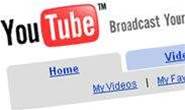
The move will see three new channels on YouTube: BBC, showing drama and video diaries; BBC Worldwide, showing entertainment programmes such as Top Gear; and BBC World, containing 30 news clips a day.
YouTube members would be able to rate, comment on and forward the clips to friends.
"This ground-breaking partnership between the BBC and YouTube is fantastic news for our audiences," said Mark Thompson, director-general of the BBC.
"YouTube is a key gateway through which to engage new audiences in the UK and abroad. The partnership provides a creative outlet for a range of short-form content from BBC program makers, and the opportunity to learn about new forms of audience behaviour.
"It is essential that the BBC embraces new ways of reaching wider audiences with non-exclusive partnerships such as these."
But reports from US media conglomerate Viacom suggest that the BBC may be about to cannibalise its own viewers. Viacom has reported a big surge in viewers since it forced YouTube to withdraw its content from the site.
Viacom had been in discussions about licensing content on YouTube but when negotiations broke down it insisted that the site took down over 100,000 clips, which included footage from MYV, Comedy Central and Nickelodeon.
"Video streaming traffic on our sites has increased dramatically, and is an important validation of our strategy," Philippe Dauman, president and chief executive of Viacom, told the Financial Times.
The company reported that traffic to Comedy Central's website nearly doubled, while MTV.com and Nickelodeon Web visits rose from between 30 and 50 percent.


_(23).jpg&h=140&w=231&c=1&s=0)

.png&h=140&w=231&c=1&s=0)





 Cyber Resilience Summit
Cyber Resilience Summit
 iTnews Executive Retreat - Security Leaders Edition
iTnews Executive Retreat - Security Leaders Edition
 Huntress + Eftsure Virtual Event -Fighting A New Frontier of Cyber-Fraud: How Leaders Can Work Together
Huntress + Eftsure Virtual Event -Fighting A New Frontier of Cyber-Fraud: How Leaders Can Work Together
 iTnews Cloud Covered Breakfast Summit
iTnews Cloud Covered Breakfast Summit
 Melbourne Cloud & Datacenter Convention 2026
Melbourne Cloud & Datacenter Convention 2026












_(1).jpg&h=140&w=231&c=1&s=0)



